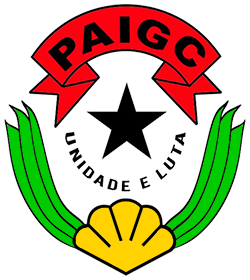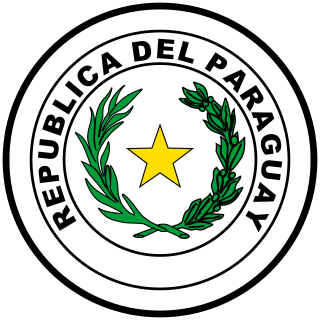
Fulgencio Batista y Zaldívar was the elected President of Cuba from 1940 to 1944, and the U.S.-backed authoritarian ruler from 1952 to 1959, before being overthrown during the Cuban Revolution. Batista initially rose to power as part of the 1933 Revolt of the Sergeants, which overthrew the provisional government of Carlos Manuel de Céspedes y Quesada. He then appointed himself chief of the armed forces, with the rank of colonel, and effectively controlled the five-member "pentarchy" that functioned as the collective head of state. He maintained this control through a string of puppet presidents until 1940, when he was himself elected President of Cuba on a populist platform. He then instated the 1940 Constitution of Cuba and served until 1944. After finishing his term he lived in Florida, returning to Cuba to run for president in 1952. Facing certain electoral defeat, he led a military coup against President Carlos Prío Socarrás that preempted the election.

The African Party for the Independence of Guinea and Cape Verde is a political party in Guinea-Bissau. Originally formed to peacefully campaign for independence from Portugal, the party turned to armed conflict in the 1960s and was one of the belligerents in the Guinea-Bissau War of Independence. Towards the end of the war, the party established a Marxist–Leninist one-party state, which remained intact until multi-party democracy was introduced in the early 1990s. Although the party won the first multi-party elections in 1994, it was removed from power in the 1999–2000 elections. However, it returned to office after winning parliamentary elections in 2004 and presidential elections in 2005, since which it has remained the largest party in the National People's Assembly.
This article gives an overview of liberalism in Cuba. It is limited to liberal parties with substantial support, mainly proved by having had a representation in parliament. The sign ⇒ means a reference to another party in that scheme. For inclusion in this scheme it isn't necessary so that parties labeled themselves as a liberal party.

Elections in Cuba involve nomination of municipal candidates by voters in nomination assemblies, nomination of provincial and national candidates by candidacy commissions, voting by secret ballot, and recall elections. Cuba is a one-party state with the Communist Party of Cuba as the "leading force of society and of the state" under the national constitution, although elections are nominally non-partisan.

The 1962 United States elections were held on November 6, and elected the members of the 88th United States Congress. The election occurred in the middle of Democratic President John F. Kennedy's term. The Republican Party picked up four seats in the House of Representatives, but the Democrats retained strong majorities in both houses of Congress. In the Senate, Democrats won a net gain of four seats from the Republicans, maintaining control of the Senate. In the gubernatorial elections, neither party won a net gain of seats. Notably, 1960 Republican presidential nominee Richard Nixon lost the California gubernatorial election, which many analysts incorrectly predicted to be the end of his political career.
The Agreement among the People's Republic of Angola, the Republic of Cuba, and the Republic of South Africa granted independence to Namibia from South Africa and ended the direct involvement of foreign troops in the Angolan Civil War. The accords were signed on 22 December 1988 at the United Nations Headquarters in New York City by the Foreign Ministers of People's Republic of Angola, Republic of Cuba and Republic of South Africa.

The Popular Socialist Party was a communist party in Cuba. Originally called the Communist Party of Cuba, it was formed in 1925 by a group including Blas Roca, Anibal Escalante, Fabio Grobart, Alfonso Bernal del Riesgo and Julio Antonio Mella, who acted as its leader until his assassination in Mexico in 1929. It was later renamed the "Communist Revolutionary Union". After the electoral victory of the Partido Auténtico in the 1944 elections, the party went into decline, and eventually adopted the name "Popular Socialist Party" for electoral reasons.
The Republican Party of Havana was a political party in Cuba. The party was founded in the end of 1899. It was led by Dr. Domingo Méndez Capote. Prominent party members included Mario García Menocal, Eugenio Sánchez Agramonte, Fernando Freyre de Andrade, Manuel María Coronado, Manuel Despaigne and Juan Gualberto Gómez.
The Cuban National Party was a political party in Cuba. At the very beginning of the 20th century, it was one of the three main political parties on the island. The party favoured independence for Cuba.
Municipal elections were held in Cuba on June 16, 1900. The elections were held under the auspices of the U.S. Military Government with a system of restricted suffrage. 7% of the Cuban population took part in the polls, which saw some important victories for pro-independence sectors.

General elections were held in Paraguay on 10 May 1998. The presidential elections were won by Raúl Cubas Grau of the Colorado Party, who received 55.3% of the vote. In the Congressional elections, the Colorado Party won 45 of the 80 seats in the Chamber of Deputies and 24 of the 45 seats in the Senate, defeating the Democratic Alliance formed by the Authentic Radical Liberal Party and the National Encounter Party. Voter turnout was 80.5%.

Constitutional Assembly elections were held in Cuba on 15 September 1900. The result was a victory for the Republican-Democratic Coalition, which won 18 of the 31 seats.

General elections were held in Cuba on 1 June 1948. Carlos Prío Socarrás won the presidential election running under the Auténtico-Republican Alliance banner, whilst the Partido Auténtico emerged as the largest party in the House of Representatives, winning 29 of the 70 seats. Voter turnout was 78.7%.

General elections were held in Cuba on 1 November 1920. Alfredo Zayas y Alfonso won the presidential election, whilst the National League emerged as the largest faction in the House of Representatives, winning 31 of the 59 seats.

The Second Occupation of Cuba by United States military forces, officially the Provisional Government of Cuba, lasted from September 1906 to February 1909.

The Communist Party of Cuba is the ruling political party in the Republic of Cuba. It is a communist party of the Marxist–Leninist model. The Cuban constitution ascribes the role of the party to be the "leading force of society and of the state". Since April 2011, the First Secretary of the Central Committee has been Raúl Castro, younger brother of the previous First Secretary Fidel Castro, who died on 25 November 2016. The Second Secretary has been José Ramón Machado Ventura.

The 1894 United States elections was held on November 6, and elected the members of the 54th United States Congress. These were mid-term elections during Democratic President Grover Cleveland's second term. The Republican landslide of 1894 marked a realigning election In American politics as the nation moved from the Third Party System that had focused on issues of civil war and reconstruction, and entered the Fourth Party System, known as the Progressive Era, which focused on middle class reforms.

Parliamentary elections were held in Cuba on 11 March 2018 to elect members of the National Assembly of People's Power, alongside provincial elections. Prior to the elections, President Raúl Castro declared he would not be seeking a new term, and a new President of the Council of State will be elected by the National Assembly. His deputy, Miguel Díaz-Canel, was subsequently elected as the new president. However, Castro remained the First Secretary of the Communist Party of Cuba, the most senior position in the country.












